Alumni, Broadcom MASTERS, ISEF, Science Talent Search
Society Alumni offer advice
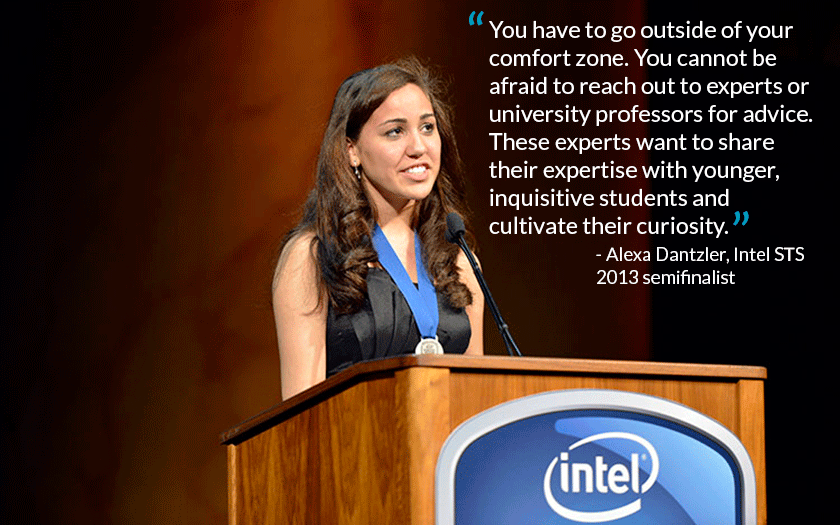
Society for Science & the Public alumni are successful not only in science competitions, but also want to share their love of STEM and encourage others to get involved. Throughout the year, we have been compiling advice from our alumni for those interested in science and math.
Here is a sample of advice from Society alumni:
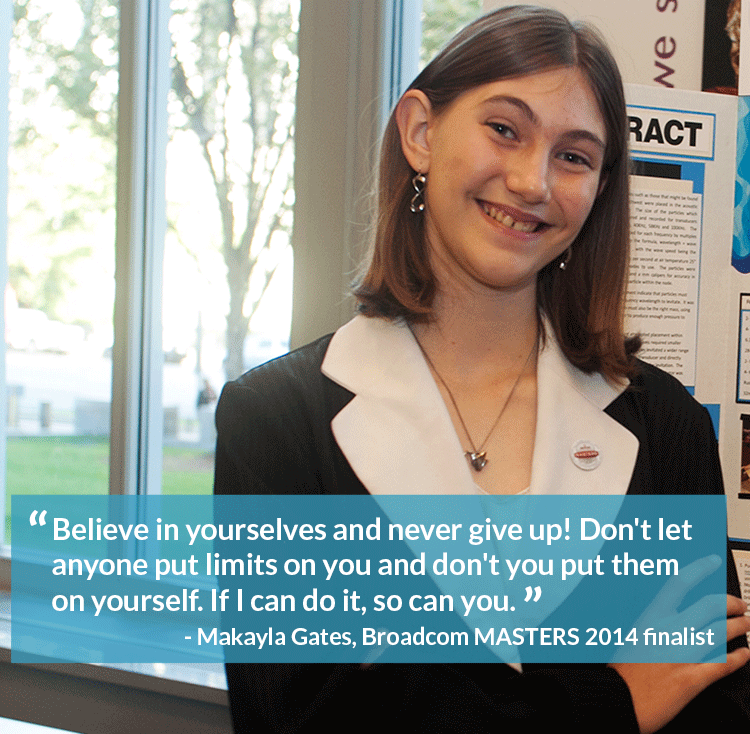
“Believe in yourselves and never give up! Don’t let anyone put limits on you and don’t you put them on yourself. If I can do it, so can you.”
– Makayla Gates, Broadcom MASTERS 2014 finalist
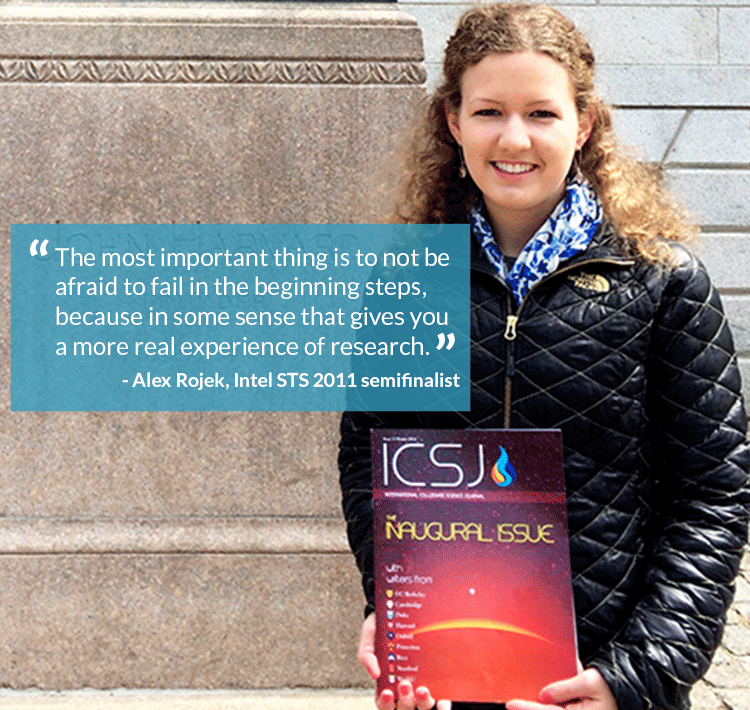
“The most important thing is to not be afraid to fail in the beginning steps, because in some sense that gives you a more real experience of research.”
– Alex Rojek, Intel STS 2011 semifinalist
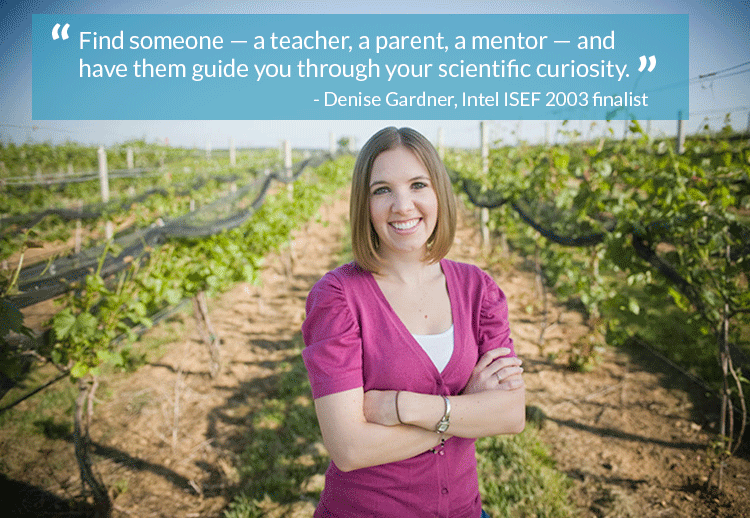
“Find someone — a teacher, a parent, a mentor — and have them guide you through your scientific curiosity.”
– Denise Gardner, Intel ISEF 2003 finalist
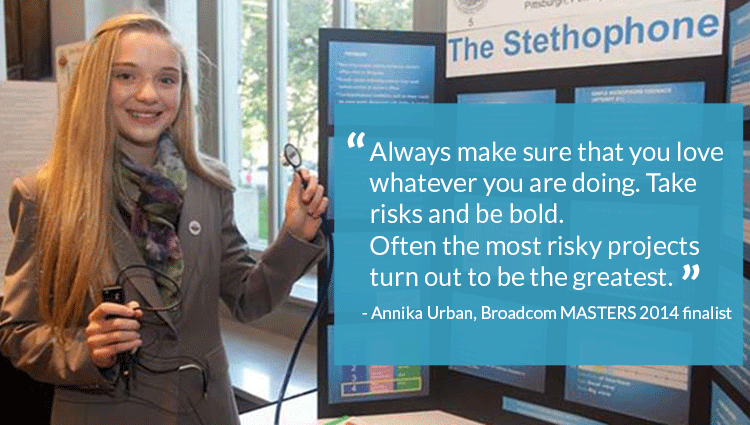
“Always make sure that you love whatever you are doing. Take risks and be bold. Often the most risky projects turn out to be the greatest.”
– Annika Urban, Broadcom MASTERS 2014 finalist
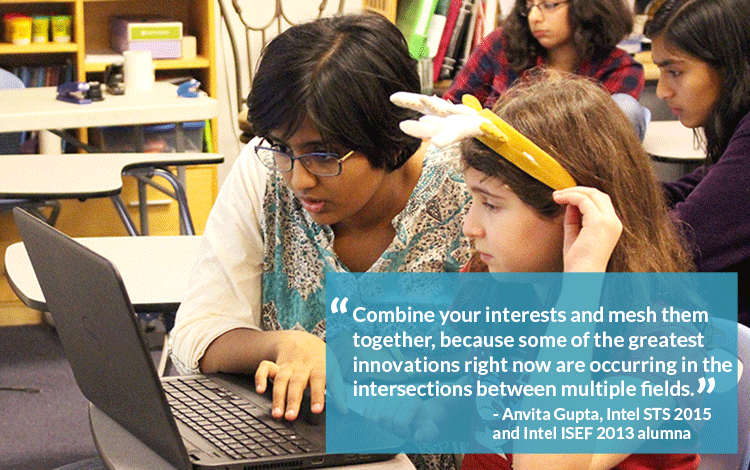
“Learn as much as you can about what interests you in science, through advanced courses, online classes, experiments, maybe even research. Combine your interests and mesh them together, because some of the greatest innovations right now are occurring in the intersections between multiple fields.”
– Anvita Gupta, Intel STS 2015 and Intel ISEF 2013 alumna
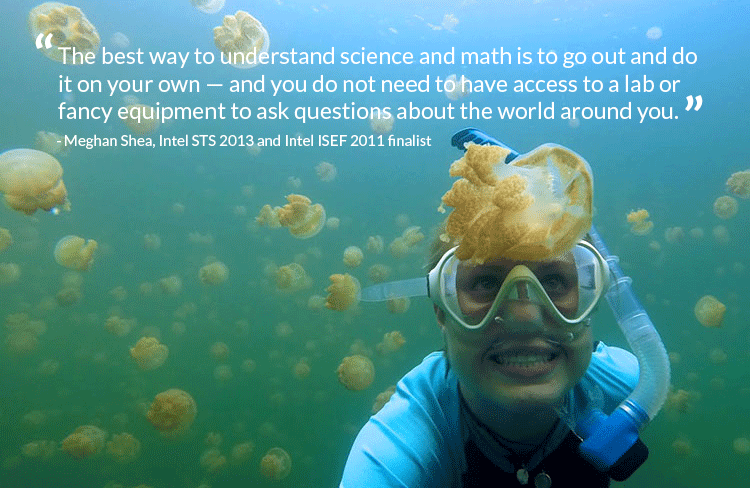
“The best way to understand science and math is to go out and do it on your own — and you do not need to have access to a lab or fancy equipment to ask questions about the world around you. Find something you’re passionate about, come up with an idea you want to test, and go out and do it. I’ve learned more through research than I’ve ever learned in a class, or a lecture, or a textbook.”
– Meghan Shea, Intel ISEF 2011 and Intel STS 2013 finalist
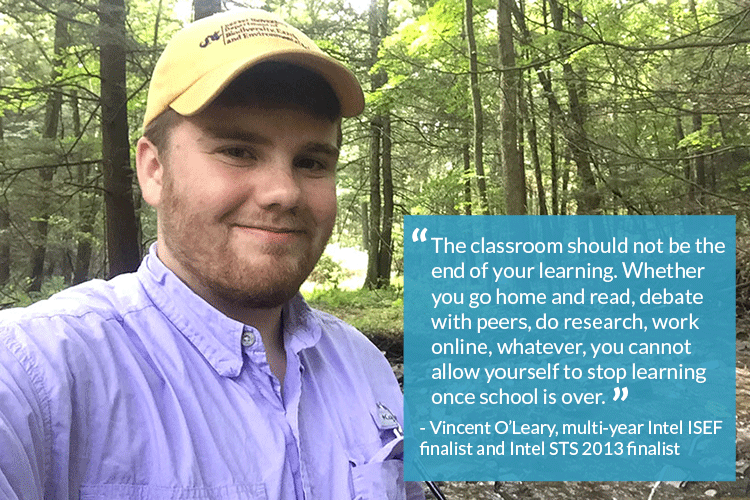
“The classroom should not be the end of your learning. Whether you go home and read, debate with peers, do research, work online, whatever, you cannot allow yourself to stop learning once school is over. Learning should happen every second of every day and the only thing you need to do to be a scientist or mathematician is to keep asking why, and occasionally writing down the answer so you can get published and get other people to ask why.”
– Vincent O’Leary, multi-year Intel ISEF finalist and Intel STS 2013 finalist
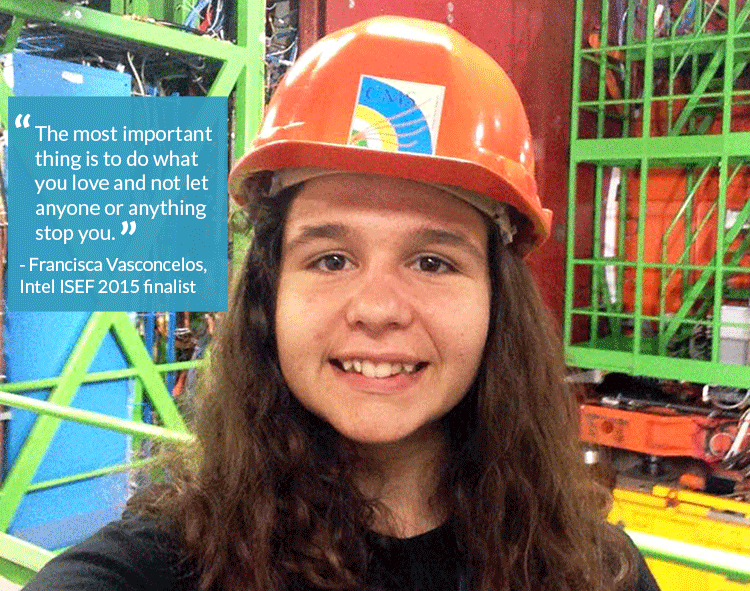
“The most important thing is to do what you love and not let anyone or anything stop you. Especially when doing research, there will be times when you will fail, when people will tell you to quit and when you will feel like quitting. However, you cannot let this deter you and you must push through! The most rewarding projects are always the ones in which you struggle the most.”
– Francisca Vasconcelos, Intel ISEF 2015 finalist
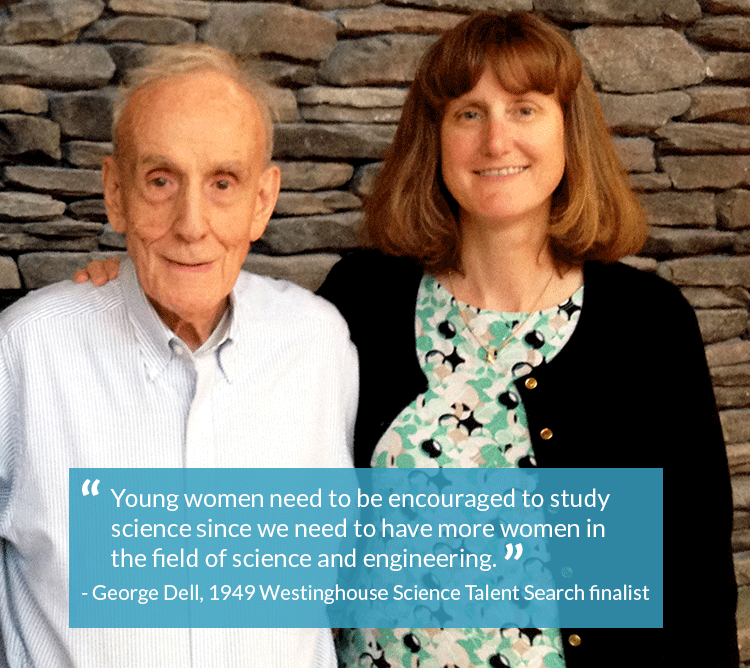
“I would encourage high school students to study science and math and pursue an exciting career with good job opportunities. Young women need to be encouraged to study science since we need to have more women in the field of science and engineering.”
– George Dell, Westinghouse Science Talent Search 1949 finalist
“It is important to have a role model in science that helps you to visualize yourself embarking on a similar career path. This is especially important for women and minorities that may be underrepresented in certain STEM fields.”
– Kristi Snell (George Dell’s daughter), Westinghouse Science Talent Search 1985 finalist
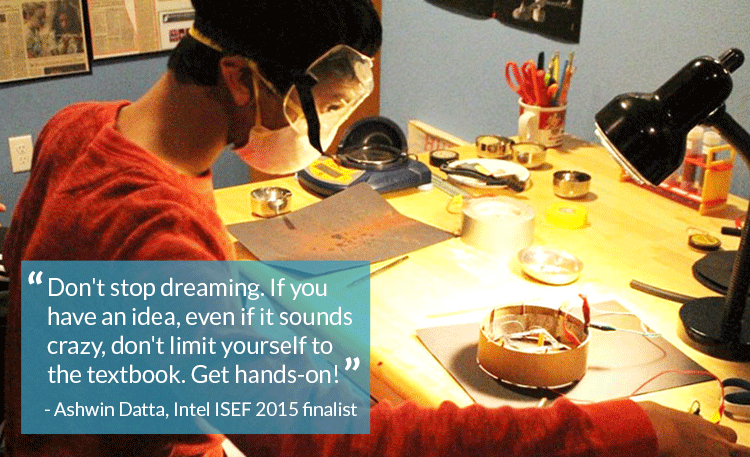
“Don’t stop dreaming. If you have an idea, even if it sounds crazy, don’t limit yourself to the textbook. Get hands-on! Projects of your own design are the most fascinating and will help you develop yourself as a scientist, engineer, or innovator. Seek resources from others if you can’t access them by yourself (the science closets of public schools like my own surprisingly hold plenty of useful things to tinker with). And get your friends involved!”
– Ashwin Datta, Intel ISEF 2015 finalist
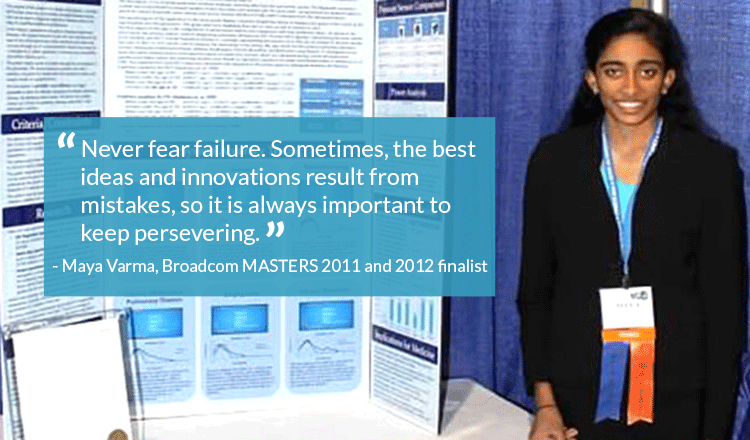
“Never fear failure. Sometimes, the best ideas and innovations result from mistakes, so it is always important to keep persevering.”
– Maya Varma, Intel STS 2016 finalist, Broadcom MASTERS 2011 and 2012 semifinalist
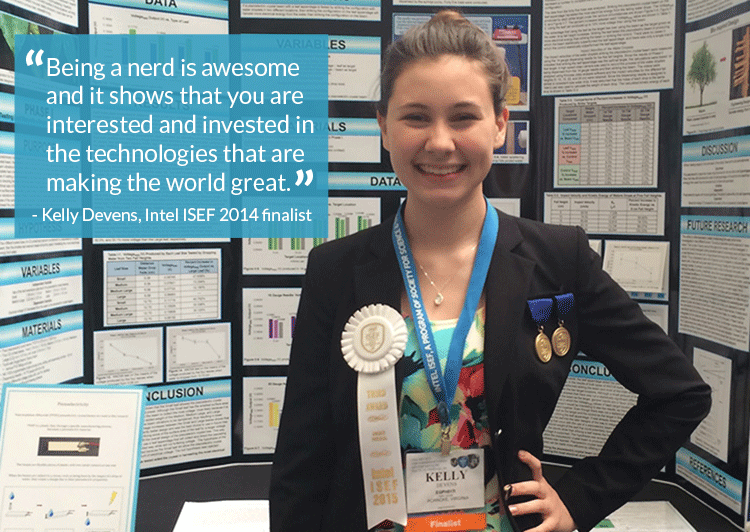
“Don’t be afraid to explore new territory. You will find things that intrigue, challenge, and inspire you and you’ll quickly be on your way to becoming a science nerd. Embrace this! Being a nerd is awesome and it shows that you are interested and invested in the technologies that are making the world great. Science and math is intriguing, ever-changing, and you can make real impacts through these fields. A lot of people may think that science fairs are lame or boring, but this couldn’t be more wrong.”
– Kelly Devens, Intel ISEF 2014 finalist
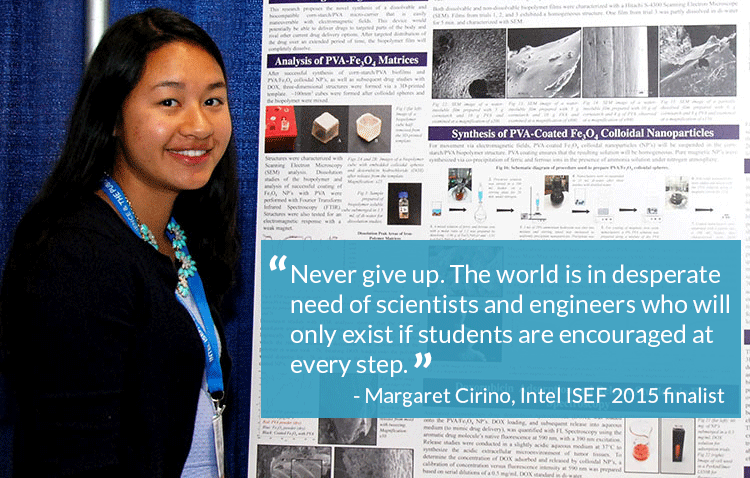
“Continue fostering this interest through high school and college, and never give up. Science and math can be very difficult subjects that often dissuade people from pursuing majors in STEM. Too often, high school students lose interest in STEM because the subject matter is so complex; however, by remaining committed to these disciplines, students may not only rediscover a love for science, but will also be capable of helping their communities and accrue valuable skills. The world is in desperate need of scientists and engineers who will only exist if students are encouraged at every step.”
– Margaret Cirino, Intel ISEF 2015 finalist
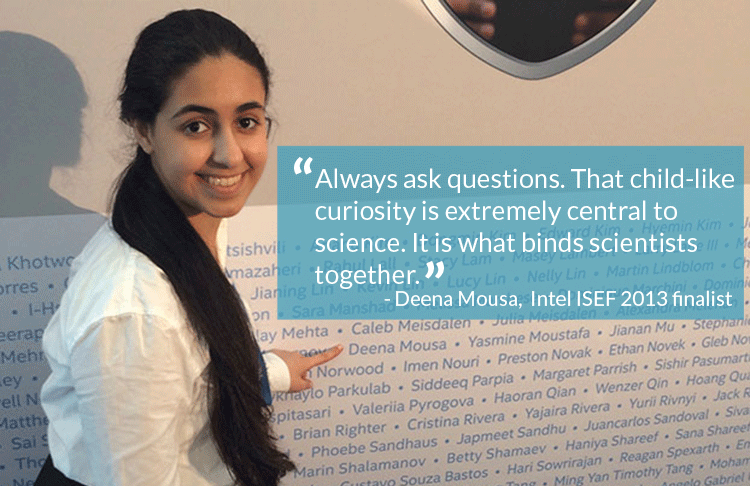
“Always ask questions. Some of the best discoveries start with just taking a moment to ask ‘Why?’ To me, that child-like curiosity is extremely central to science. It is what binds scientists together.”
– Deena Mousa, Intel ISEF 2013 finalist
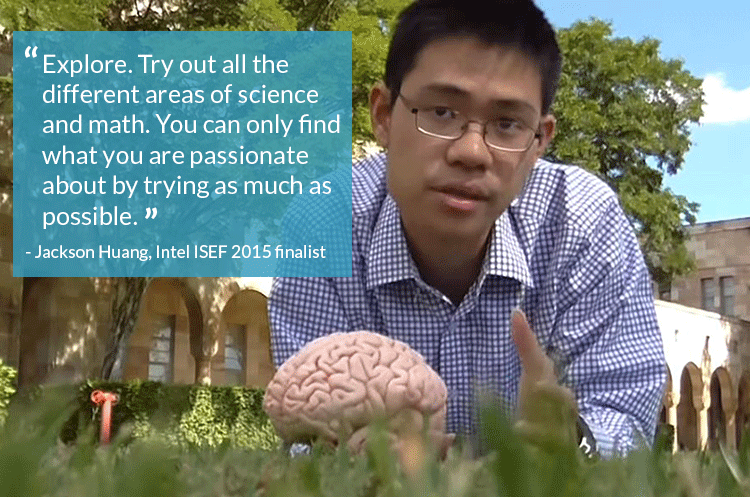
“Explore. Try out all the different areas of science and math. You can only find what you are passionate about by trying as much as possible.”
– Jackson Huang, Intel ISEF 2015 finalist
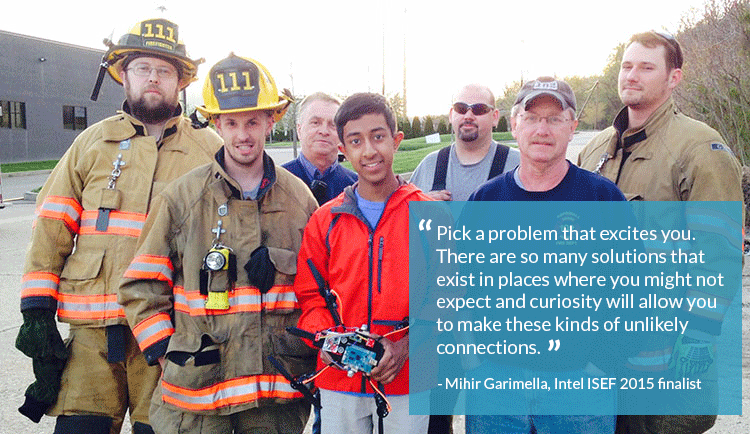
“Look around. There are so many problems in the world — so pick a problem that excites you. There are so many solutions that exist in places where you might not expect, or where scientists might not have looked before — I never expected fruit flies to hold the key to designing better drones — and curiosity will allow you to make these kinds of unlikely connections.”
– Mihir Garimella, Intel ISEF 2015 finalist, Broadcom MASTERS finalist


